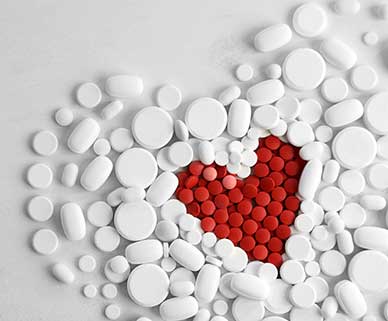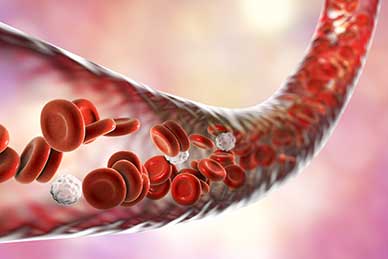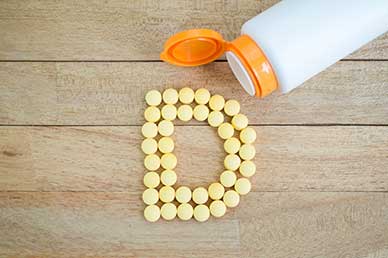Cardiovascular disease is one of the top causes of death in the Western world. In an age of convenience foods and high stress, many people die of heart attacks, strokes and other diseases of our heart and blood vessels. There is a constant stream of new pharmaceuticals intended to preserve our cardiovascular system, but these are limited in effectiveness and come with a scary list of side effects. What if there was a list of safe and natural ingredients for heart health? New studies on the effects of different micronutrients may offer this guidance.
Amino Acids for a Healthy Cardiovascular System
Americans get more protein than we need, but we are often lacking in some of the amino acids that are necessary for good heart health. Amino acids are more than building blocks of proteins, but also essential for certain biochemical and enzymatic reactions need to have optimal health. L-arginine is one of these essential amino acids. Recent studies have found that this amino acid can help to prevent coronary artery disease, thus preventing serious illnesses such as heart attacks. It also has been found to help with peripheral artery disease, angina and other cardiovascular diseases.
L-arginine is not the only amino acid that is important in a strong cardiovascular system. L-proline and L-cysteine also appear to be crucial for heart health. Proline is important in building the collagen and other materials that make up healthy blood vessels. Taking in ample amounts of this amino acid has been found to improve the health of these tissues. L-cysteine, often taken as the popular supplement N-acetyl cysteine, acts as an antioxidant, helping to prevent damage to tissues from toxins. Both amino acids are an important part of a heart-healthy diet and supplement regimen.
Vitamins: Ingredients for Heart Health
 A large part of maintaining good heart health is simply eating a range of vitamins and minerals. B vitamins, folic acid, calcium and magnesium have all been found to have a positive impact on cardiovascular health. These are all recommended for daily consumption by dietitians and nutritionists. However, few people get enough of these nutrients. The Western diet is simply too processed and depleted to maintain good cardiovascular health. For people who struggle with diet temptations, a vitamin supplement can help to maintain a healthy heart and cardiovascular system naturally.
A large part of maintaining good heart health is simply eating a range of vitamins and minerals. B vitamins, folic acid, calcium and magnesium have all been found to have a positive impact on cardiovascular health. These are all recommended for daily consumption by dietitians and nutritionists. However, few people get enough of these nutrients. The Western diet is simply too processed and depleted to maintain good cardiovascular health. For people who struggle with diet temptations, a vitamin supplement can help to maintain a healthy heart and cardiovascular system naturally.
Why are these nutrients so important? Research shows that they act as cofactors in metabolism, allowing cells to function optimally. We also know that they act as antioxidants, preventing damage from oxidative stress. B vitamins are especially important because they help the body to maintain high levels of homocysteine in the blood, which helps to support good cardiovascular health. Our hearts and blood vessels simply cannot function as well without a full range of vitamins and minerals to support good health.
Healing Heart Tissues the Natural Way
Taking a vitamin is an obvious way to stay healthy. However, there are other natural supplements that can also help to promote good cardiovascular health. Grapeseed extract has a growing body of evidence suggesting that it is vital for a healthy heart and vessels. In fact, this compound is believed to be partially responsible for many of red wine’s purported health benefits. Grapeseed extract reduces inflammation, helps blood vessels to function optimally and even may lower cholesterol levels.
CoQ10 is also an important supplement to take for its heart-healthy benefits. Also known as Coenzyme Q10 or ubiquinol, CoQ10 has been found in several studies to have a variety of beneficial cardiovascular effects. It lowers blood pressure and reduces plaque deposits on blood vessels. Is there anything this wonder supplement cannot do? CoQ10 is necessary for good cell function and made by the human body. However, levels decrease as we age, which may be partly responsible for much of the tissue degeneration that often accompanies growing older. Taking a supplement is a great way to ensure that you have enough CoQ10 to support good health at any age.
You have probably heard of many of these compounds that help promote a healthy heart. However, most people in the West have not heard of nattokinase, another supplement that has been found to improve cardiovascular health. Made from the popular fermented soybean dish natto, nattokinase has been used to lower the risk of blood clots after long airline flights. It also has a variety of other positive effects, including promoting general heart and artery health. Because Americans do not generally eat natto, the only food that contains this compound, taking a supplement is the only way to get the benefits of nattokinase.
Keeping good heart health begins with giving your cardiovascular system all of the ingredients that it needs to stay healthy. Taking a supplement with some or all of these ingredients is a great way to promote good heart health and whole body health at the same time.
 How much soy protein do you need in your daily diet to get these health benefits? Doctors recommend that people take 50 mg of soy protein a day to improve their cardiovascular risk, or 40 to 80 mg a day if taking it to treat menopause or other hormonal imbalances. Regardless of the amount your physician recommends, there are a variety of ways to add more isoflavones to your diet. Consider adding some of these tasty foods to your diet:
How much soy protein do you need in your daily diet to get these health benefits? Doctors recommend that people take 50 mg of soy protein a day to improve their cardiovascular risk, or 40 to 80 mg a day if taking it to treat menopause or other hormonal imbalances. Regardless of the amount your physician recommends, there are a variety of ways to add more isoflavones to your diet. Consider adding some of these tasty foods to your diet: Although there is significant controversy about the role of saturated fat in heart disease, most doctors and experts agree on several lifestyle changes intended to improve cardiovascular health. Eating a plant-based, whole foods diet is one of the best things you can do for your health, as it cuts back on “bad” fats and additives while ensuring that you get enough vitamins and healthy fats. Taking a walk, as the study authors suggested, also is a lifestyle decision that will improve heart health and mental health at the same time.
Although there is significant controversy about the role of saturated fat in heart disease, most doctors and experts agree on several lifestyle changes intended to improve cardiovascular health. Eating a plant-based, whole foods diet is one of the best things you can do for your health, as it cuts back on “bad” fats and additives while ensuring that you get enough vitamins and healthy fats. Taking a walk, as the study authors suggested, also is a lifestyle decision that will improve heart health and mental health at the same time.  Why do modern people
Why do modern people  The heart is not the organ that can suffer when people do not get enough sleep. Having insomnia leaves people at a
The heart is not the organ that can suffer when people do not get enough sleep. Having insomnia leaves people at a  Several studies on quercetin have linked it to
Several studies on quercetin have linked it to  Quercetin is present in a wide variety of antioxidant-rich foods, including:
Quercetin is present in a wide variety of antioxidant-rich foods, including: Vitamin D
Vitamin D If you suspect that you have low vitamin D, there are simple blood tests to measure levels of this nutrient that any doctor can prescribe for you. However, different people need different levels to function optimally, so a normal score does not automatically mean that you are not at risk. Be sure to get time in the sun every day without sunscreen; even short amounts of time in the summer can make a huge difference. Keep these exposures small so you do not tan or burn, raising your risk of skin cancer and premature aging.
If you suspect that you have low vitamin D, there are simple blood tests to measure levels of this nutrient that any doctor can prescribe for you. However, different people need different levels to function optimally, so a normal score does not automatically mean that you are not at risk. Be sure to get time in the sun every day without sunscreen; even short amounts of time in the summer can make a huge difference. Keep these exposures small so you do not tan or burn, raising your risk of skin cancer and premature aging.